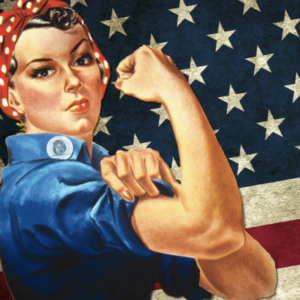MAGA Republicans have an answer to the identity crisis facing American men, a solution with a significant flaw. It leaves out women’s achievements in the past half-century.
The definition of manliness, not just in the United States but worldwide, has been consistent. It is not being a woman. For centuries, avoiding any signs of femininity has been the central theme of masculinity. Women are expected to be soft and gentle, and men to be tough. Where women are emotional, men are stoic, and where women are weak, men are strong and dominant.
Social scientists claim that American men are in a crisis. Their evidence: male suicide rates, drug overdoses, extraordinary education achievement gaps, even a lifespan now five years less than women.
Enter our country’s political divide, where the definition of manliness is a hot commodity. Those on the political right argue that the left is engaged in a full-throat battle to feminize and sissify the American male. Their answer is to double down on the traditional male ideals, a kind of “grow a pair.”
The argument for toughness includes a binary perception of gender. There are no gays, transgender people, etc. There are only two shades of humans, or only two shades should be allowed.
Marjorie Taylor Greene is vocal on this matter, posting a sign on her congressional door: “There are TWO genders: MALE & FEMALE …Trust the Science!”) In this version of what psychologists call all-or-nothing thinking, a typical pattern of unhealthy beliefs, there is the perception that all gender variations are fantasy or misguided.
Tucker Carlson, a Fox News host until recently, criticizes the presence of pregnant women in the military, suggesting that women are weak and should play no role in the manly job of America’s defense. Such is at the heart of those who show the angst of America’s manliness. The problem they face is that women are no longer perceived as weak.
Sen. Josh Hawley, a Missouri Republican, is another touting a 1950’s view of masculinity. His views have a heavy religious slant, as exhibited in his book “Manhood: The Masculine Virtues American Needs.”
Hawley’s ideals are anachronistic, a throwback to an almost Viking mentality. Nowhere in Hawley’s reactionary definition of manhood are considerations of women. His vision is not only ill-conceived but beyond possibility in our post-feminist society. Hawley wants to stuff the feminist revolution back in the bottle. It won’t happen, even with a segment of men wishing to return to a time when they were dominant.
Each of these three conservative Republicans is influential in different subgroups of their political party. Each ignores the advances of both women’s rights and their many achievements.
The dilemma that these Republicans face in the long run is women’s achievements and rights are never going back to the last century. Men’s anachronistic definition of maleness is outdated in the context of today’s women. Women have already proven their strengths and acquired many rights, while not receiving equal pay. At issue is what it is to be a man. Arriving home to homemade dinner is a thing of the past.
Psychologists examining the distress evident in traditional manliness see the absence of characteristics that have gotten men in trouble — lack of empathy, vulnerability and openness. Instead, boys and men emphasize achievement, dominance, stoicism and the suppression of emotions — boys don’t cry — carried to an extreme. These are the behaviors the Far Right is often promoting. These are the same behaviors we often see in young men who are lost and, often, suicidal.
Teaching and expecting macho behavior are harmful and often lead to feelings of inferiority, sadness and loneliness. That is the conclusion of the American Psychological Association in a report titled APA Guidelines for Psychological Practice with Boys and Men. The report argues that such standards limit psychosocial development and thwart healthy relationships.
A breakdown or absence of relationships is at the heart of the current masculine malaise. Deep friendships strongly deter loneliness, addiction, suicide and violence.
Changing the definition of masculinity to reflect the advances in women’s achievements and rights is in order. Adding greater openness, empathy and vulnerability would be an excellent place to start. Such a modern shift would help heal the crisis American men currently face.

